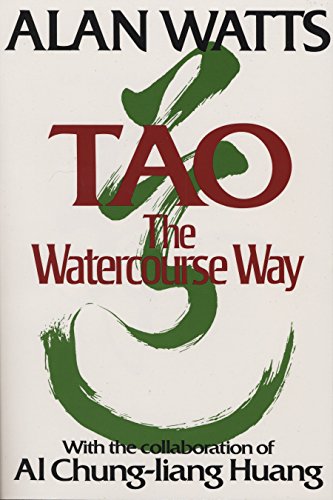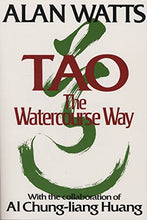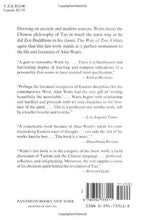Tao: The Watercourse Way
Regular price
$ 18.00
$ 12.00
Sale
Author: Alan Watts
Brand: Pantheon
Color: White
Edition: 1st
Binding: Paperback
Format: Illustrated
Number Of Pages: 134
Release Date: 12-01-1977
Details: Product Description "A lucid discussion of Taoism and the Chinese language . . . profound, reflective, and enlightening." —Boston Globe According to Deepak Chopra, "Watts was a spiritual polymatch, the first and possibly greatest." Drawing on ancient and modern sources, Watts treats the Chinese philosophy of Tao in much the same way as he did Zen Buddhism in his classic The Way of Zen. Critics agree that this last work stands as a perfect monument to the life and literature of Alan Watts. "Perhaps the foremost interpreter of Eastern disciplines for the contemporary West, . . . Watts begins with scholarship and intellect and proceeds with art and eloquence to the frontiers of the spirit."— Los Angeles Times Review "A gem to remember Watts by . . . There is a flamboyant and fascinating display of learning and complex indications of a personality that seems to have resisted inner pacification." — Kirkus Reviews"Perhaps the foremost interpreter of Eastern disciplines for the contemporary West, Alan Watts had the rare gift of 'writing beautifully the unwritable' . . . Watts begins with scholarship and intellect and proceeds with art and eloquence to the frontiers of the spirit . . . This is a profound and worthy work, left by a teacher to echo and re-echo." — Los Angeles Times "A remarkable book because of Alan Watts's talent for communicating Eastern ways of thought . . . not only the last of his works, but the best . . . This book is a 'must.'" — Shambhala Review "Watts's last book is in the category of his finest work, a lucid discussion of Taoism and the Chinese language . . . profound, reflective, and enlightening. Moreover, the text supplies a sense of his ebullient spirit behind the revelation of Tao." — Boston Globe From the Inside Flap Drawing on ancient and modern sources, Watts treats the Chinese philosophy of Tao in much the same way as he did Zen Buddhism in his classic The Way of Zen. Critics agree that this last work stands as a perfect monument to the life and literature of Alan Watts. From the Back Cover Drawing on ancient and modern sources, Watts treats the Chinese philosophy of TAO in much the same way as he did Zen Buddhism in his classic The Way of Zen. Critics agree that this last work stands as a perfect monument to the life and literature of Alan Watts.Written with the collaboration of Al Chung-liang Huang. About the Author Alan W. Watts, who held both a master’s degree in theology and a doctorate of divinity, is best remembered as an interpreter of Zen Buddhism in particular, and of Indian and Chinese philosophy in general. Standing apart, however, from sectarian membership, he has earned the reputation of being one of the most original and “unrutted” philosophers of the twentieth century. Watts was the author of some twenty books on the philosophy and psychology of religion that have been published in many languages throughout the world, including the bestselling The Way of Zen. An avid lecturer, Watts appeared regularly on the radio and hosted the popular television series, Eastern Wisdom and Modern Life, in the 1960s. He died in 1973. Excerpt. © Reprinted by permission. All rights reserved. 2. The Yin-Yang Polarity At the very roots of Chinese thinking and feeling there lies the principle of polarity, which is not to be confused with the ideas of opposition or conflict. In the metaphors of other cultures, light is at war with darkness, life with death, good with evil, and the positive with the negative, and thus an idealism to cultivate the former and be rid of the latter flourishes throughout much of the world. To the traditional way of Chinese thinking, this is as incomprehensible as an electric current without both positive and negative poles, for polarity is the principle that + and –, north and south, are different aspects of one and the same system, and that the disappearance of either one of them would be the disappearance of the system. People who have been brought up
Package Dimensions: 9.1 x 6.1 x 0.5 inches
Languages: English



